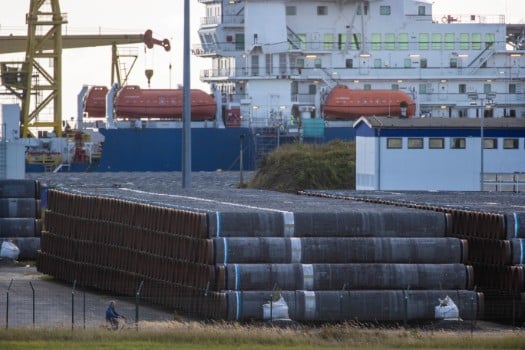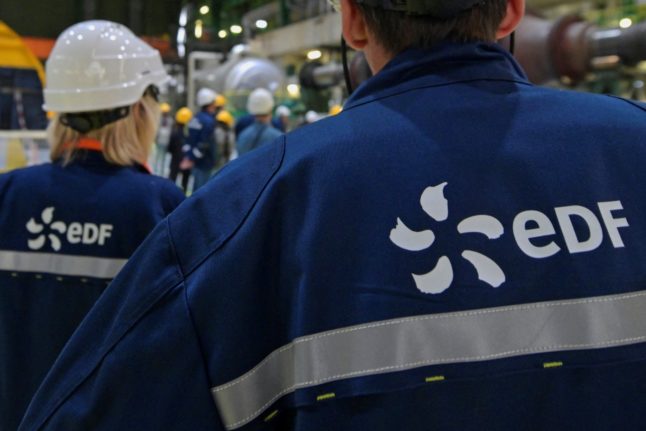German shipping authorities have issued an advisory for the Baltic Sea area where the final few kilometres of the pipeline are set to be laid, warning vessels to avoid the zone from December 5-31.
Ship-tracking website Marinetraffic.com also shows Russian pipe-laying ships Fortuna and Akademik Cherskiy moving towards the area.
These indications coincided with a statement from the acting US ambassador to Germany calling on Berlin and the EU to halt construction of the 1,200-kilometre (750-mile) pipeline, which is also opposed by many eastern European states.
“Now is the time for Germany and the EU to impose a moratorium on the construction of the pipeline,” acting ambassador Robin Quinville told business daily Handelsblatt.
This would send a signal to Russia that Europe was not willing to accept “its ongoing malicious behaviour”, the diplomat said.
“The pipeline is not only an economic project, but also a political tool that the Kremlin is using to bypass Ukraine and divide Europe.”
Many critics
Nord Stream 2 is a 10-billion-euro ($11-billion) pipeline that will run beneath the Baltic Sea and is set to double Russian natural-gas shipments to Germany, Europe's largest economy.
It has long been in the crosshairs of the United States, particularly by the Trump administration which has openly criticised European countries for their reliance on energy from Russia.
Work has been suspended for nearly a year because of US sanctions signed off by Trump in late 2019 that threaten asset freezes and visa restrictions for companies involved in the construction work.
As well as Russian giant Gazprom, which has a majority stake, the international consortium involved in the project includes European players such as Germany's Wintershall and Uniper groups, the Dutch-British giant Shell, France's Engie and Austria's OMV.
Trump has said Germany is “a captive to Russia” because of its energy policy.
Poland, Ukraine and the Baltic states are also fiercely opposed to the pipeline, fearing it will increase Europe's reliance on Russian energy supplies, which Moscow could then use to exert political pressure.
German Chancellor Angela Merkel has face criticism in Germany for backing the project and there was speculation that she might withdraw support following the poisoning of Russian opposition figure Alexei Navalny earlier this year.
Navalny was treated in a Berlin hospital and German authorities concluded that he had been poisoned with a rare Novichok nerve agent developed by Russian authorities, plunging relations with the Kremlin to a new low.
In September when asked if the poisoning could affect Nordstream 2, Merkel's spokesman replied: “The chancellor believes it would be wrong to rule anything out from the start.”
A Nordtream 1 pipeline, which runs along a similar route to Nordstream 2, was inaugurated in 2011.
SEE ALSO: Denmark hails new German doubts on Russian gas pipeline



 Please whitelist us to continue reading.
Please whitelist us to continue reading.
Member comments